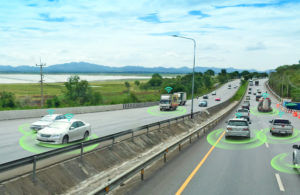Although there’s been a race among car manufacturers to bring autonomous vehicles (AVs) to market, after a string of setbacks in AV testing curbed public trust in the technology, the focus has shifted toward AV safety.
It’s no longer just about what AVs can do, but about how to do those things more safely. And while local, state, and federal governments are not developing AVs or related technologies, they are expected to regulate them.
That’s why the United States Department of Transportation (USDOT) recently announced $60 million in federal grants for AV programs. The grants will help public entities gather more information about and understanding of how to safely integrate AVs into the existing transportation system.
The criteria for projects receiving the grant money includes gathering and sharing a significant amount of data with USDOT. The goal is to inform leaders across the country of both the risks of AVs and the opportunities to influence safety policies.
AVs for Transportation-Challenged Populations
Certain AV projects will be prioritized in the USDOT funding determination process, such as those that hone in on transportation-challenged populations, including aging adults and individuals with disabilities.
A sharp rise in the numbers of senior citizens is anticipated in the coming years — senior citizens are expected to double in number to 83.7 million by 2050, representing nearly 20 percent of the overall population. This will likely outpace the widespread use of AVs. Nearly one-third of the states in the United States don’t have legislative or executive orders in place for this technology.
Staying socially connected is a vital part of healthy aging, but the effects of aging on vision and cognitive faculties can make that difficult when it comes to getting out and about. AVs would provide older generations with more independence and allow them to avoid isolation, which is associated with greater illness and a shorter lifespan.
Those with vision impairments and other disabilities that may prevent driving would also benefit from being able to independently manage their own transportation through the use of AVs.
AV Education
Learn more about the foundational and practical applications of connected, intelligent AV technologies, with IEEE. The Guide to Autonomous Vehicle Technology is a seven-course program exploring the latest industry-leading strategies and business-critical research on AV technologies. Developed by some of the leading experts in the field, this program offers attendees valuable CEUs and PDHs upon completion. Connect with an IEEE Content Specialist for more information today.
Resources
Kawamoto, Dawn. (18 May 2018). Race Against Time: States Debate Autonomous Vehicle Legislation Amid Aging Population. GovTech.
Pettigrew, Simone. (4 July 2018). Driverless cars really do have health and safety benefits, if only people knew. The Conversation.
Pyzyk, Katie. (2 Jan 2019). USDOT announces $60M in federal grants for AV programs. Smart Cities Dive.



[…] and is really not noticeable most of the time, in a future where cutting edge innovations like self-driving cars and remote-controlled robotics are envisioned, having near-zero latency is even more critical. This […]